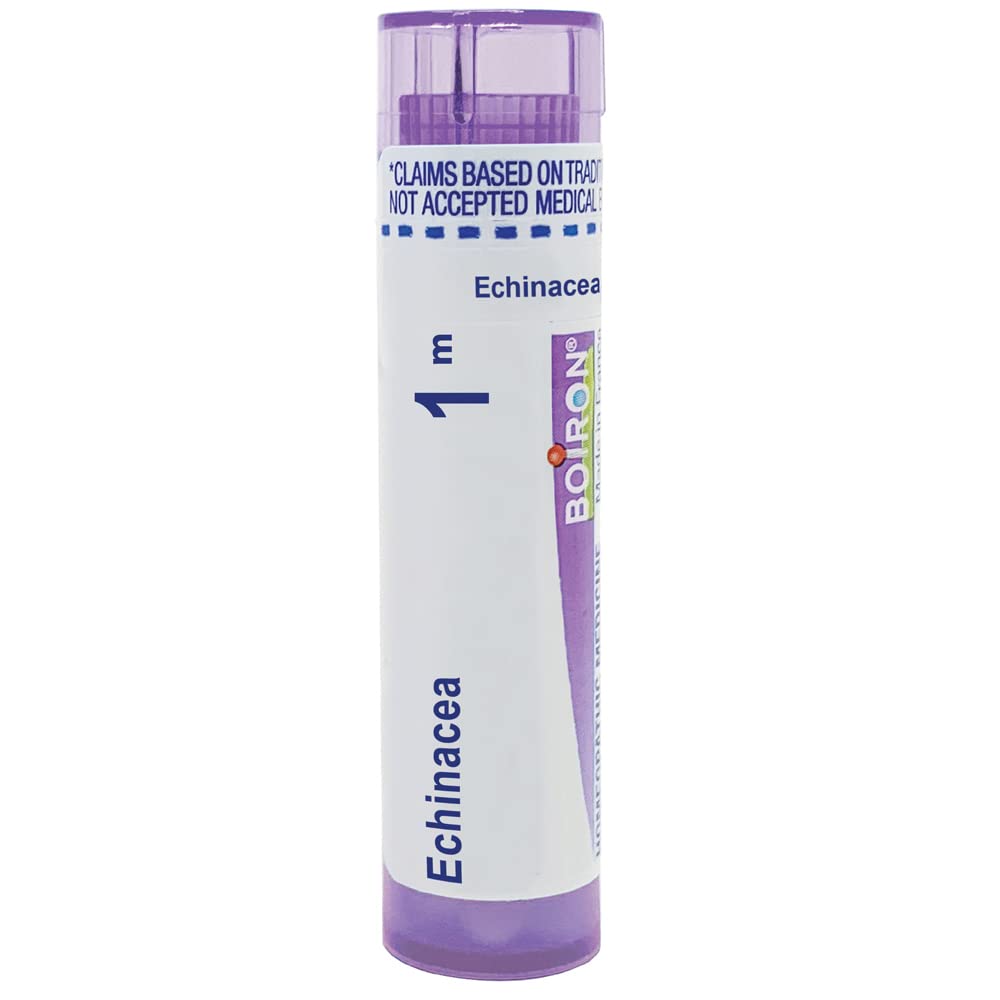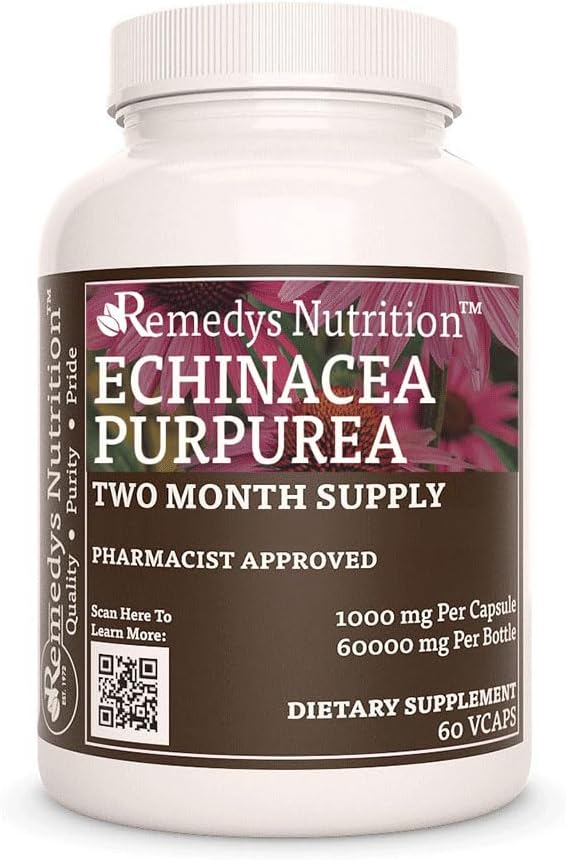Echinacea, known as coneflower, thrives in the U.S. and Canada and is renowned for its array of antioxidants. These plant compounds, including flavonoids, cichoric acid, and rosmarinic acid, play a crucial role in protecting cells from oxidative stress. By counteracting the damaging effects of oxidative stress, Echinacea may contribute to reducing the risk of chronic ailments such as diabetes and heart disease. Studies reveal that these antioxidants are more concentrated in extracts from the flowers and roots, enhancing its potency against oxidative stress. Additionally, Echinacea harbors alkamides, further amplifying its antioxidant capabilities.

A Multifaceted Health Ally: Echinacea’s multifaceted health benefits have garnered considerable attention. With a spotlight on its positive effects on the immune system, Echinacea has demonstrated the ability to bolster the body’s defense against infections and viruses. This immune-enhancing attribute has fueled its reputation as a preventive measure and treatment option for the common cold. Research indicates that Echinacea may potentially reduce the risk of upper respiratory tract infections by up to 22%, although its influence on illness duration remains inconclusive. Although some studies question its efficacy against colds, Echinacea’s immunity-boosting potential continues to capture scientific interest.
Blood Sugar Regulation: Echinacea’s potential in blood sugar regulation has captured the spotlight, offering promise in managing conditions like diabetes. In vitro studies reveal that Echinacea extracts can inhibit carbohydrate-digesting enzymes, potentially moderating the entry of sugar into the bloodstream. Animal studies extend this potential by showcasing the antioxidants in Echinacea’s capacity to enhance blood sugar levels and insulin sensitivity. However, human-based research is limited, prompting the need for further investigations.

Tackling Anxiety and Inflammation: The growing concerns of anxiety have spurred interest in Echinacea’s possible role in alleviating this common issue. Compounds like alkamides, rosmarinic acid, and caffeic acid within Echinacea have shown promise in anxiety reduction. Clinical studies underscore this potential, revealing notable reductions in anxiety symptoms upon Echinacea consumption. Beyond anxiety, Echinacea demonstrates prowess in combating inflammation. Studies suggest its ability to mitigate inflammation’s detrimental effects, showcasing potential in managing chronic diseases. Its ability to reduce inflammatory markers has implications for conditions like osteoarthritis.
Skin and Cancer Considerations: Echinacea’s reach extends to skincare, offering potential benefits in addressing skin concerns. Its compounds have been associated with improved skin hydration, wrinkle reduction, and eczema symptom alleviation. Moreover, the arena of cancer research has revealed intriguing findings regarding Echinacea’s impact. Test-tube studies underscore its potential to inhibit cancer cell growth and stimulate controlled cell death. Chicoric acid, a natural Echinacea compound, exhibits cancer cell death-triggering properties. Yet, while the prospects are promising, human-based studies are needed to solidify these potential applications.

Expert Guidance Matters: Your healthcare professional can guide you on appropriate Echinacea usage, especially if you’re concurrently taking medications. Furthermore, Echinacea should not be taken on an empty stomach, and extended usage exceeding a few weeks lacks comprehensive safety assessment. Storage in a cool, dry place away from children’s reach is advisable.
Efficacy and Side Effects: Numerous studies have probed Echinacea’s impact on the common cold, yet conclusive evidence is elusive. While it may not significantly shorten illness duration, taking it preventatively could potentially reduce the risk of catching a cold. As with any supplement, side effects can occur, ranging from mild discomforts like upset stomach and dizziness to more severe allergic reactions. It’s important to promptly communicate any adverse effects to your healthcare provider.
Selecting with Caution: Echinacea may not be suitable for everyone. Individuals with autoimmune disorders, HIV, AIDS, tuberculosis, and those on immunosuppressants should avoid its use. Allergic reactions are possible, particularly if you’re sensitive to plants in the daisy family. To ensure your safety, discussing your health history with a medical professional is recommended before incorporating Echinacea into your health routine.
In summary, Echinacea, the herbal coneflower, holds promise as a potential aid against viral infections. While its efficacy is subject to ongoing research, considering potential benefits, consulting healthcare professionals, and adhering to recommended dosages can make the journey of integrating Echinacea into your wellness routine a balanced and informed one.
